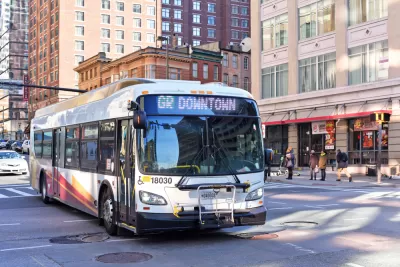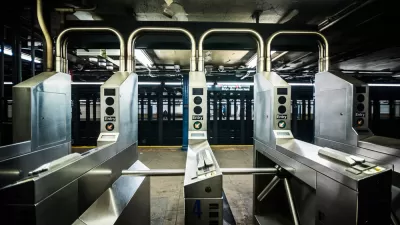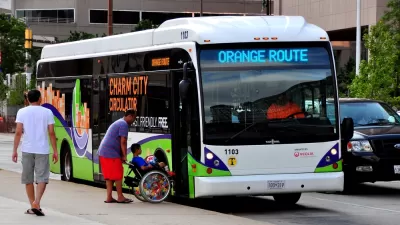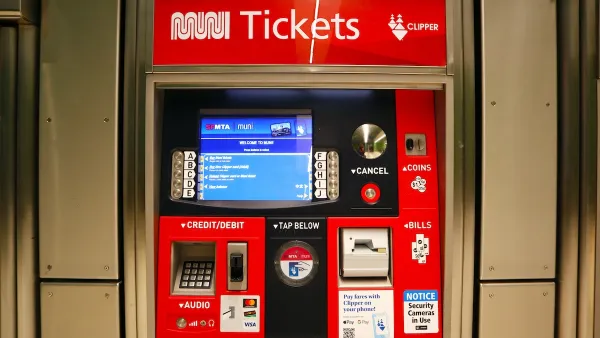If signed by the governor, the act will halt a scheduled fare increase previously tied to inflation.

New legislation passed by the Maryland General Assembly would prevent a scheduled fare increase for riders on the Maryland Transit Administration (MTA) system. Alex Holt describes the law, which heads to Governor Wes Moore’s desk, in Greater Greater Washington.
The Fair Fares Act, passed by the General Assembly on April 5, “uncouples MTA fares from the requirement that they increase with inflation, as measured by the Consumer Price Index” and “gives the MTA the authority to alter fares, including raising them, as it sees fit — albeit with some conditions, namely first giving public notice and holding a public hearing before making any fare changes.”
Del. Mark Edelson (D-Baltimore City), who introduced the House bill, said stopping the fare increases raised equity concerns for the majority of MTA riders who depend on transit. “[F]or us to increase fares on these riders, at a time when inflation is already significantly ahead of wage increases, is going to hit them in a terrible way and it’s completely inconsistent with our values of helping lift folks up out of poverty and creating a more reliable transit system that serves everybody.”
Holt explains, “Even if it isn’t quite as dramatic as DC’s fare-free transit proposal, the bill at least starts the conversation about what it might take to get closer to that. It also fuels the discussion about how to fund public transit going forward, and about allowing MTA to follow national trends by experimenting with more flexible pricing arrangements based on factors like income, like the program the Massachusetts Bay Transportation Authority just adopted.”
FULL STORY: Fair Fares Act expected to give MTA riders relief

Planetizen Federal Action Tracker
A weekly monitor of how Trump’s orders and actions are impacting planners and planning in America.

San Francisco's School District Spent $105M To Build Affordable Housing for Teachers — And That's Just the Beginning
SFUSD joins a growing list of school districts using their land holdings to address housing affordability challenges faced by their own employees.

The Tiny, Adorable $7,000 Car Turning Japan Onto EVs
The single seat Mibot charges from a regular plug as quickly as an iPad, and is about half the price of an average EV.

Austin's First Single Stair Apartment Building is Officially Underway
Eliminating the requirement for two staircases in multi-story residential buildings lets developers use smaller lots and more flexible designs to create denser housing.

Atlanta Bus System Redesign Will Nearly Triple Access
MARTA's Next Gen Bus Network will retool over 100 bus routes, expand frequent service.

Toronto Condo Sales Drop 75%
In two of Canada’s most expensive cities, more condos were built than ever — and sales are plummeting.
Urban Design for Planners 1: Software Tools
This six-course series explores essential urban design concepts using open source software and equips planners with the tools they need to participate fully in the urban design process.
Planning for Universal Design
Learn the tools for implementing Universal Design in planning regulations.
Smith Gee Studio
City of Charlotte
City of Camden Redevelopment Agency
City of Astoria
Transportation Research & Education Center (TREC) at Portland State University
US High Speed Rail Association
City of Camden Redevelopment Agency
Municipality of Princeton (NJ)





























